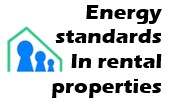A house, for the majority of people, is going to be the largest purchase of their lives. Due to this it makes sense to have your potential new home surveyed before embarking on years of repayments and interest costs.
The valuation survey that your mortgage provider obtains is entirely just for the lenders benefit and is meant to tell them if the property is worth the mortgage value or not. This survey does not check that it is structurally sound.
Instigating a survey will show if there are any structural issues and allow you to negotiate the costs of the remedial work in your offer – without it you will have no recourse
The Royal Institution of Chartered Surveyors (RICS) have 3 levels of surveys available, each with different levels of detail. Obviously the more detailed a survey, the more it will cost. The suggestion is to choose the one that is appropriate for the type and age of the property you are interested in. The cost of the surveys will also depend on the size of the property; the type of property as well as which firm you use.
The types of home surveys are listed below which a short explanation of its contents and why you might choose it. This text is from the RICS website page https://www.rics.org/consumer-guides/house-surveys-uk-the-costs-types-and-benefits-of-an-rics-home-survey
Types of Home Survey
Different properties require different types of survey. RICS introduced a new Home Survey Standard on 1 March 2021 to increase consistency and transparency across residential surveying in the UK. This introduced the three different levels of RICS Home Survey.
The appropriate level of survey will in most cases depend on the age, size, condition, complexity and originality of the property. An RICS member can advise on the type that’s right for you.
Level 1 Home Survey
An RICS Level 1 Home Survey, previously called a ‘Condition Report’, describes the condition of the property, identifies any risks and potential legal issues, and highlights any urgent defects. Typically the lowest-priced survey, it is aimed at conventional properties and newer homes. It will note defects in the property but will generally not provide advice on how to manage those defects. Choose an RICS Level 1 Home Survey if you’re buying a conventional house, flat or bungalow built from common building materials and in good condition.
Level 2 Home Survey
Previously called a ‘Home Buyer Report’ or ‘Home Buyers’ Survey’, an RICS Level 2 Home Survey is most suitable for conventional properties that are in reasonable condition and are simple in form and layout (for example, a property that does not have multiple alterations or extensions). The report gives you more detailed information about the property, and ideas about future repairs or maintenance that may be required. Level 2 can be a survey only, or a survey and a valuation:
- Level 2 Home Survey (survey only)includes all the features of the Home Survey Level 1 and more extensive roof space and drainage chamber inspection. It includes advice on defects that may affect the property and what maintenance or repairs may be required. Choose an RICS Level 2 Home Survey if you would like more extensive information while buying or selling a conventional house, flat or bungalow, built from common building materials and in reasonable condition.
- Level 2 Home Survey (survey and valuation)includes all the features of the RICS Level 2 Home Survey, plus a market valuation and insurance reinstatement figure, to help you avoid under- or over-insurance. Choose this option if you would like all the benefits of an RICS Level 2 Home Survey along with a valuation.
Level 3 Home Survey
An RICS Level 3 Home Survey is the most comprehensive survey report. It was previously known as an ‘RICS Building Survey’. It provides you with an extensive, in-depth analysis of the property’s condition and includes advice on defects, repairs and maintenance options. Choose an RICS Level 3 Home Survey if you’re dealing with a large, older or run-down property, a building that is unusual or altered, or if you’re planning major works.
It has been suggested that whichever survey you decide on, should be completed as soon as possible to the mortgage valuation. This will then allow any renegotiating on purchase price, if major deficiencies are found, or to walk away from the purchase completely before legal costs spiral.






Leave A Comment